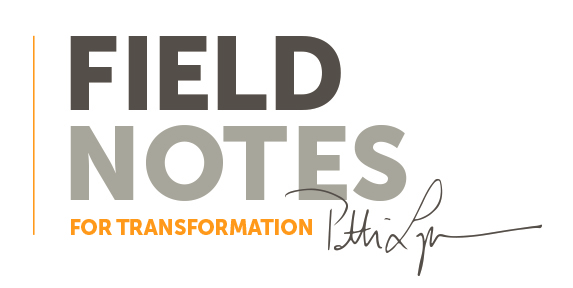
Living into the change we want to see
Dear friend,
Over these past few tumultuous years, I’ve been leaning more and more into the concept that how we work toward justice and transformation is critical to the outcome of the work. The outcome, of course, is a different world. A world rooted in justice, equity, and love where all people—no matter what we look like or what community we belong to—are able to live full, dignified lives in right relationship with all beings. Such a world won’t come out of the board rooms of corporations. It will be—and is being—built by the hearts, hands, and minds of people on the frontlines of the climate crisis and the pandemic; by caretakers and domestic workers; by women and youth; by Black, Indigenous, and other people of color; by people who are creating solidarity economies; by LGBTQ+ people; by people who have disabilities; by communities in the Global South; and more.
And I’m learning more deeply every day that the societal transformation we seek has to start with my own and the organization’s transformation. So, for example, working toward racial equity in our campaign goals means that we also need to center Black, Indigenous, and other people of color in our campaigning and organization. And if we are organizing toward an economy that puts people, not profits, first, then we need to reshape organizational policies to more effectively prioritize the humanity of our staff.
In that context, I’ve been thinking a lot about what leadership looks like in this moment. How do we shift our structure so that leadership is distributed across the organization? What does that look like in an increasingly multiracial, multicultural, global organization? How do we do it in a way where decision-making and leadership come from people of color and people in the Global South? I’m asking these questions, and I’m listening to the answers. The best answers don’t come from me. They come from the Corporate Accountability community—staff, international team members, board members, and allies who bring a multitude of experience to this work.
Since I’ve taken on the role of Executive Director, I’ve sent you these Field Notes for Transformation every several months. I enjoy communicating with you about what’s on my mind and where I see the organization headed. But I’m only one of many people who drive our powerful work forward every day. I’m only one of many people who are thinking deeply about Corporate Accountability’s work, mission, and direction. The ideas I share with you here are always shaped by my fellow organizers and colleagues—and I want to more explicitly uplift their perspectives, experiences, and values. So, over the next year in these Field Notes, you’ll be hearing directly from other people in the Corporate Accountability community. I’m excited for you to have a chance to learn about a few of the amazing human beings who are helping to guide this organization into the future.
The format will be varied: there will be interviews, letters written from other staff, and conversations. In the kick-off to this series, I am starting by introducing you to Research Director Ashka Naik. In the rest of this letter, I share with you some background on how Ashka comes to this work and the ways in which our approach to leadership and campaigning overlap. And you’ll get a chance to hear from her directly.
Examining power dynamics from a young age
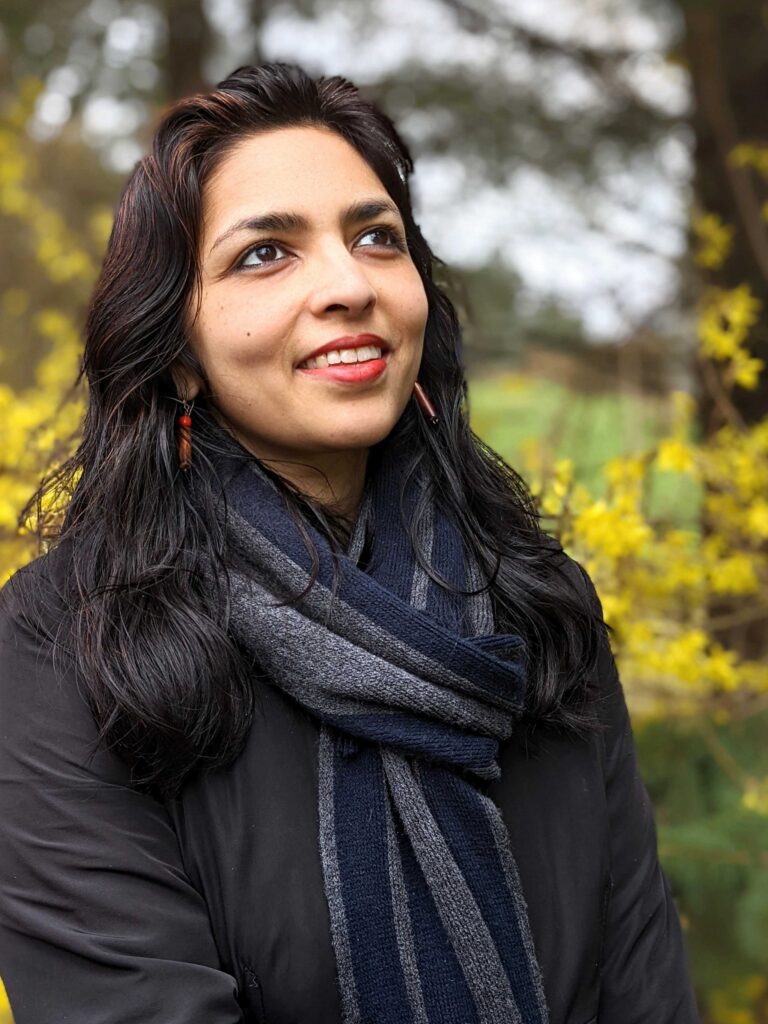
research director speaks about taking
on corporate power and her responsibility
to future generations.
Ashka directs the organization’s research unit and leads on corporate engagement. She’s part of a team of senior staff who ensure that our work aligns with our values while making the biggest impact possible to hold corporations accountable. With two decades of international experience, Ashka is particularly passionate about exposing industry influence in the realms of food security, sovereignty, and justice. She explores the structures and politics behind food systems, nutrition, gender justice, and public health through her work at Corporate Accountability as well as in her doctorate studies at the University of Massachusetts.
Her commitment to challenging corporate power comes from her experience as a young person growing up in India and living with her great-grandfather, a prominent labor-rights leader who twice served as the country’s Prime Minister. “I had a deep respect and reverence for how he lived his life and what he stood for,” she says. But she explains that even as she learned from her great-grandfather’s wisdom and principles, she was growing up in a country that was rapidly changing:
In the 1990s India made a deal with the World Bank, the International Monetary Fund, and other international institutions to open its doors to neoliberalism. So I grew up in an India where you couldn’t find clean water, but you could find Coca-Cola at every corner of every street. I saw the transition of my own community and my country—from what our ancestors fought for against the British, to us becoming oppressed by a new kind of power. This power was driven by geopolitics, but it was in the hands of industries.
For example, I vividly remember the 1984 disaster in Bhopal—the world’s worst industrial disaster at a Union Carbide [now owned by Dow Chemical Company] pesticide plant that killed thousands of people in a matter of days. I was a preschooler when that happened. The national television channel was fully overwhelmed with the coverage of it. I always wondered what happened to those victims and if they ever got their due justice. They still haven’t.
Those were the initial roots of my questioning the power dynamics in my part of the world.
From these early life experiences, Ashka found herself feeling a responsibility to work toward justice. I think that’s one of the ways that she and I connect; we share a passion and commitment to using our time here on earth to be part of the movements for change. She puts it beautifully:
I feel that I hold responsibility toward the world because the world has invited me as a being on it, and I must do something for it. That’s I think a very primordial sense that I have. If I have a body, a mind, a heart, and hands, I need to call out injustices. I need to bring this whole self of mine to bring about whatever change or awareness I can in this vast movement of millions of others doing the same.
I also feel responsibility toward future generations. I often say this in our family discussions. I tell my kids, “When you grow up, never feel accountable to us. Feel accountable first to yourself and then to the future generations.” That’s how my grandparents and great-grandparents lived. And I lived with them in an intergenerational community, so I feel that very strongly.
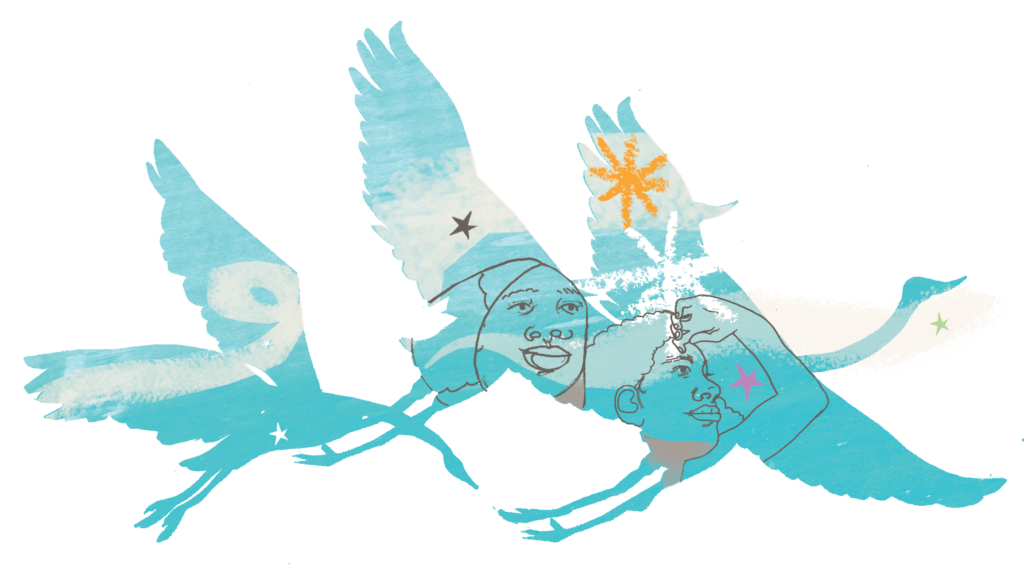
Leadership as a quality grounded in listening
Living in that intergenerational community also informed Ashka’s sense of leadership. Referring back to her great-grandfather, she says he was the quietest person she had ever met. “He would not utter a word unless you really coaxed him to. But when he would speak, he spoke meaning.” So Ashka doesn’t equate leadership with extroversion or being hyper-visible:
Leadership is not necessarily action alone. I think it’s a quality. It’s not what you do, it’s why you do it. It’s the deep sense of responsibility you hold. Leadership doesn’t have to be loud. It’s more like living; there’s nothing to prove or disprove. Embracing silence is also a great sign of leadership in my mind.
At the same time, Ashka doesn’t shy away from bold action. In my experience, she is one of the fiercest advocates for advancing our mission in the world through powerful campaign tactics. I particularly value her analysis of how our campaigns are all connected—and how the powers we take on are also connected:
I believe that if we do not hold an interconnected perspective on each of our campaigns, we lose opportunities to realize vital change. We weaken our ability to have deep impact on the actors we are aiming to challenge and transform the behaviors of. This is how nature works. And we must too.
I also don’t see disconnection in political institutions and the corporate world. Seeing a dichotomy there creates a danger of not looking at where these two are partnering and functioning as one to exacerbate certain abuses or deepen certain injustices to retain power and protect the wealth of the elite few. And if we don’t see them together, we will not see what they’re doing together to us. This is why the social justice movements also must unite and function as one massive force against the abusive force of today’s dominant extractive economic model.
Ultimately, our work as an organization is to do exactly this: to continually evolve our campaign strategies to more powerfully challenge the interconnected abuses of the transnational corporations and industries we challenge. Together with global allies and partners like you, we are helping to build a world where the life and well-being of people and the planet are prioritized over corporate profits.
I’m grateful to work side by side with Ashka and to do it in partnership with you. I’d love to hear what you thought of this edition of Field Notes for Transformation. Please let me know—and let me know who else on our team and community you’d like to hear from. You can write me a note here. There are so many people I’d love for you to meet. I hope you feel as inspired as I do to be part of this powerful community of people living into the change we want to see.
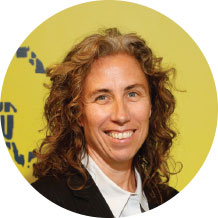
Onward,

Patti Lynn, Executive Director
Other issues of the Field Notes conversations series features Aderonke Ige, associate director of Corporate Accountability and Public Participation Africa, on democracy and people-power; and Carolina Santamaria, recruitment director, on building an inclusive and effective campaign organization.



